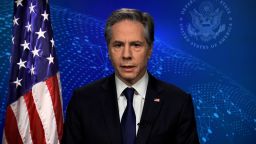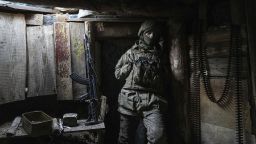For those watching the Ukraine crisis, February 20 was supposed to be a date to watch.
The 2022 Beijing Winter Olympics ended on Sunday, and some observers worried the closing ceremony might be a convenient moment for Russian President Vladimir Putin to launch military action. After all, history does rhyme: Russia escalated a brief conflict with Georgia in 2008 during the Beijing Summer Olympics, and Russia began its slow-rolling annexation of Crimea at the tail end of the 2014 Winter Olympics in Sochi.
But Sunday also offered Russia a potential opening for de-escalation. After all, massive joint Russian military exercises in Belarus were slated to end on February 20, and the Kremlin had suggested Russian troops would go home after they finished, without giving concrete dates. Belarusian Foreign Minister Vladimir Makei even said “not a single” Russian solider or piece of Russian military equipment will remain in Belarus once the drills ended.
Instead, Russia blew past another potential off-ramp in the crisis. In a Sunday statement released by the Belarusian military on Telegram, Belarusian Defense Minister Lt. Gen. Viktor Khrenin said the Russians and Belarusians would continue their drills, saying the “increase in military activity near the external borders of the Union State” – Russia and Belarus – and the heightened tensions in Donbas necessitated the decision.
Eyes remained on Donbas Sunday, as evacuees from separatist-controlled parts of eastern Ukraine continued to cross into southern Russia and from separatist-controlled regions, while reports filtered in of more shelling.
Local officials in Russia’s Rostov region have declared a state of emergency after separatist leaders on Friday ordered the evacuation of civilians from the region. But Ukraine’s Defense Minister Oleksii Reznikov laid blame on separatists in the breakaway Donetsk and Luhansk republics for escalating the situation, accusing Russian-backed separatists of putting heavy weaponry in civilian areas and using it to bombard areas under Ukrainian government control.
Meanwhile, the massing of Russian forces around Ukraine’s borders appears to have continued, according to US intelligence estimates. A US official with direct knowledge of the intelligence told CNN Russia now has arrayed close to 75% of its conventional forces parked at Ukraine’s doorstep, pointing to a high level of readiness to attack.
So is diplomacy dead? Not entirely. Putin and French President Emmanuel Macron spoke by phone Sunday and “agreed to continue to keep the dialogue open at various levels” regarding the situation in Ukraine, the Kremlin said. A sticking point, however, remains the Minsk Agreement, which the Kremlin insists is the only way to resolve the crisis. But the Kyiv government sees it as a hastily devised agreement it was forced to accept at gunpoint.
And Dmitry Peskov, Putin’s spokesperson, had a word of caution for leaders engaging with the Russian leader by phone. Speaking to Pavel Zarubin, host of the TV program “Moscow. Kremlin. Putin,” Peskov suggested the Kremlin was prepared to disclose confidential discussions of high-level talks with other world leaders to counter what he described as deliberate and misleading leaks by foreign officials.
“I hope that we will not live in a world where we have to read out the transcripts of the closed part of the presidents’ talks,” Peskov said. “But when it is necessary to prove the correctness of our president, we can and will do anything.”


